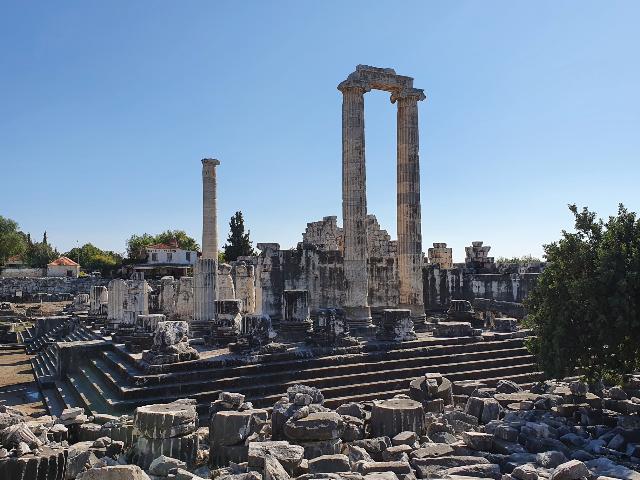Having so much time on my hands within this imposed UK lockdown has afforded me to surf around and research avenues that I’d normally pass over writes Glenn Maffia.
An interesting one is the German Archaeological Institute’s agenda and timetable of activities across the globe. Naturally I looked for any proposed new work concerning the Temple of Apollo in ancient Didyma.
Whereas other areas of German archaeological activity were stated in a timescale of many years the Didyma excavation plan merely stated 2021. I was perplexed by this as there has been a German presence in Didyma since the early part of the previous century beginning with the sterling work of Theodor Wiegand, excluding the two World Wars.
Usually my first port of call would have been to contact the institute directly via email, but as I have never received a single reply from even the highest placed members of that institute let alone the more junior personnel I decided to place my trust in my network of contacts around Europe. They have never let me down.
I shall just divert at this point to enquire what exactly the German Archaeological Institute actually does, surely its purpose is to extract evidence from a particular site and, importantly, relay their findings to the general public.
They should be ecstatic that I am showing interest in their Didyma project, not avoiding my inquisitiveness and passion of our, I hope, subject of mutual interest. Their silence baffles me and is diametrically opposite to the open and generous help I have received in the past from the late Dr Ian Jenkins and the staff at the British Museum.
Back to the European contacts: I sent out the GAI curriculum of events to a number associates who replied quickly with a varying degree of certainty. Though one in particular was rather more positive in stating there shall no longer be any more funding for the German archaeologists in Didyma, nor Miletus, and a Turkish archaeological team will, in future, be conducting excavations and preservations.
Let us all hope that this Turkish team shall be more open and cooperative than the current Director of Excavations. They may, I am dreaming here, even open the Sacred Road which has been closed since the German engineers built a wall to exclude the general public, but shepherds continue to graze their sheep there. This wall was at the request of the Turkish authorities, apparently.
I would like to think that, similar to Miletus, a dual ticket system can be practised, where buying a ticket at the entrance to the Miletus site allows one to wander over the entire site and to visit the museum.
This would work ideally for the Temple of Apollo and the Sacred Road sites. Alternatively, they could join the two sites by a connecting link (they are within close proximity to each other) and close the road that brings far too much traffic which damages the ancient structures, though that may be a dream too far.
Therefore I surmise that we could be entering exciting times for the entire archaeological site, which consists of so much more than the Temple alone. Whereas the German archaeologists could not exert any political pressure within the Ministry of Culture and Tourism, possibly a Turkish team will have a better chance of doing so.
I shall look forward to recounting their endeavours in future articles of Voices and Turkish Archaeological News. Now back to the lockdown and the feast of football being shown on British television. Take care, be safe.
